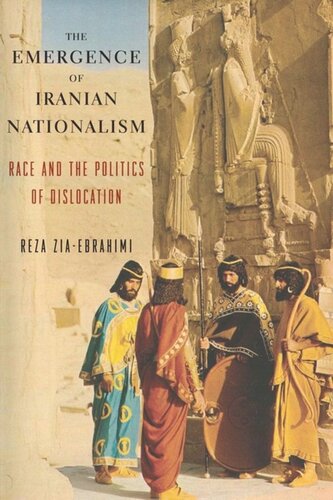

Most ebook files are in PDF format, so you can easily read them using various software such as Foxit Reader or directly on the Google Chrome browser.
Some ebook files are released by publishers in other formats such as .awz, .mobi, .epub, .fb2, etc. You may need to install specific software to read these formats on mobile/PC, such as Calibre.
Please read the tutorial at this link: https://ebookbell.com/faq
We offer FREE conversion to the popular formats you request; however, this may take some time. Therefore, right after payment, please email us, and we will try to provide the service as quickly as possible.
For some exceptional file formats or broken links (if any), please refrain from opening any disputes. Instead, email us first, and we will try to assist within a maximum of 6 hours.
EbookBell Team

4.0
16 reviewsReza Zia-Ebrahimi revisits the Qajar-era intellectuals who founded modern Iranian nationalism, arguing that they advanced an ideology of "dislocative nationalism," in which pre-Islamic Iran is cast as a golden age, Islam is radicalized as an alien religion, and Arabs become implacable others. Tying Iran to Europe and the Aryan race, this ideology remains a politically potent form of identity.
Reza Zia-Ebrahimi revisits the work of Fath?ali Akhundzadeh and Mirza Aqa Khan Kermani, two Qajar-era intellectuals who founded modern Iranian nationalism. In their efforts to make sense of a difficult historical situation, these thinkers advanced an appealing ideology Zia-Ebrahimi calls "dislocative nationalism," in which pre-Islamic Iran is cast as a golden age, Islam is reinterpreted as an alien religion, and Arabs become implacable others. Dislodging Iran from its empirical reality and tying it to Europe and the Aryan race, this ideology remains the most politically potent form of identity in Iran.
Akhundzadeh and Kermani's nationalist reading of Iranian history has been drilled into the minds of Iranians since its adoption by the Pahlavi state in the early twentieth century. Spread through mass schooling, historical narratives, and official statements of support, their ideological perspective has come to define Iranian culture and domestic and foreign policy. Zia-Ebrahimi follows the development of dislocative nationalism through a range of cultural and historical materials, and he captures its incorporation of European ideas about Iranian history, the Aryan race, and a primordial nation. His work emphasizes the agency of Iranian intellectuals in translating European ideas for Iranian audiences, impressing Western conceptions of race onto Iranian identity.